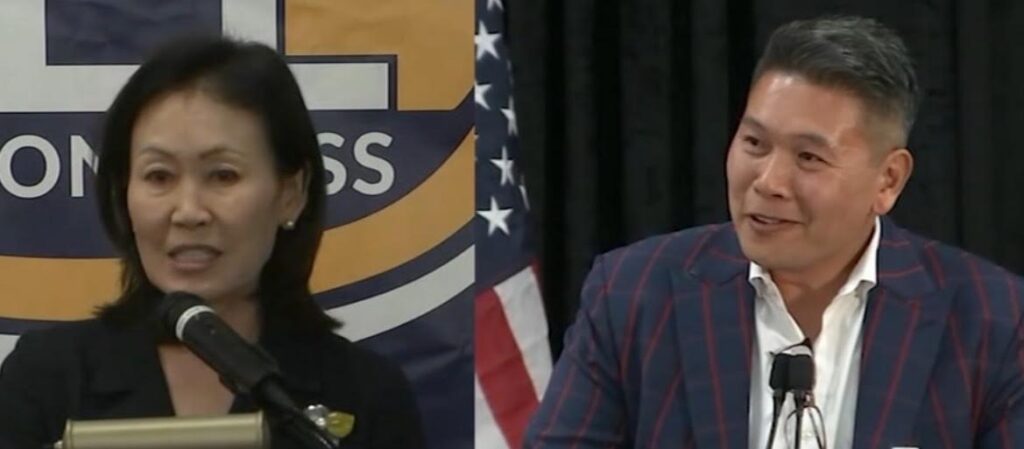In a surprising turn of events in California’s 45th congressional district, Democratic challenger Derek Tran unseated Republican incumbent Michelle Steel, marking a significant shift in the political landscape. Steel conceded defeat more than three weeks after Election Day, following Tran’s declaration of victory. Having served two consecutive terms in Congress, Steel’s loss signifies not only a personal defeat but also a broader trend in a region traditionally dominated by Republican values. This election outcome raises questions about the future of Republican representation in historically red areas, especially after a remarkable election cycle where the broader state exhibited a notable Republican resurgence.
The election results have ignited a heated debate on voting laws and practices, particularly regarding ballot harvesting and subsequent vote counting processes. Critics of the outcome point to these practices, alleging that they favor Democrats by extending the period in which ballots can be accepted and counted. This sentiment is echoed by Michelle Steel in her remarks following the election, where she emphasized her sense of duty to serve a country that has given her so many opportunities. The situation reflects broader concerns about election integrity, with some commentators suggesting that the prolonged counting processes represent a violation of democratic principles and create potential for voter fraud.
The 2024 election cycle was transformative for California, as evidenced by President Donald Trump’s robust performance, garnering approximately 40% of the state’s popular vote. This change in voter sentiment caused significant shifts across various counties, with even traditionally liberal areas like Los Angeles experiencing a 16% swing toward Republican candidates. This red wave was so overwhelming that numerous counties that had been blue in previous elections turned to support Republican candidates down the ballot, hinting at a profound change in the electorate’s priorities and concerns in recent years.
Despite the shifting political tides statewide, the election of Derek Tran in Orange County’s District 45 and David Min in District 47 after Election Day has raised eyebrows and sparked accusations of irregularities. Reports surfaced indicating that Steel did not register any updates to her vote counts after 1:20 AM on election night, leading some to question the legitimacy of subsequent ballot counts. The notion that all late-counted ballots favored Tran has further fueled beliefs of electoral fraud, with critics claiming that these circumstances undermine the integrity of the democratic process in California and highlight vulnerabilities in the current voting system.
The California Republican Party’s stance and approach toward the extended ballot counting process have come under scrutiny as well. Observers are questioning why the party has permitted such lengthy post-election ballot counting when the potential consequences could lead to Democratic victories in districts traditionally viewed as secure Republican strongholds. Amid these allegations and disputes over the electoral process, the lack of response from Steel regarding these specific accusations has only intensified public curiosity about the mechanisms and rules governing elections in the state.
As the dust settles from this significant election, the implications of these results are profound. They indicate a shifting political landscape in California, suggesting that Republican values may be losing their grip on certain traditionally red districts. The outcome of Districts 45 and 47 not only questions the future of Republican representation in Orange County but also challenges the integrity of voting practices in the state. These elections are a reflection of an evolving electorate, and as both parties reassess their strategies in this battleground state, the conversations will likely continue regarding voting laws, practice reforms, and the broader implications for future elections across the nation.

